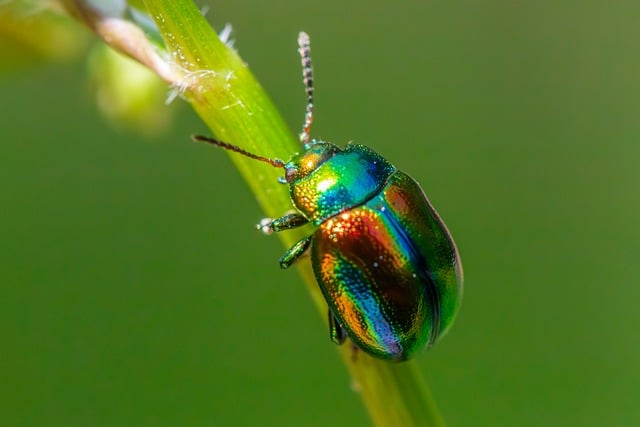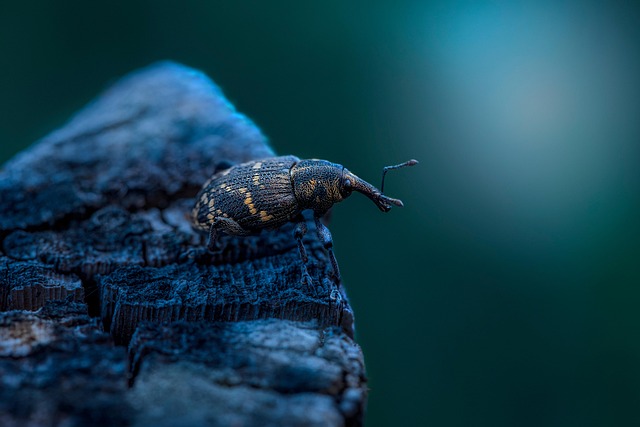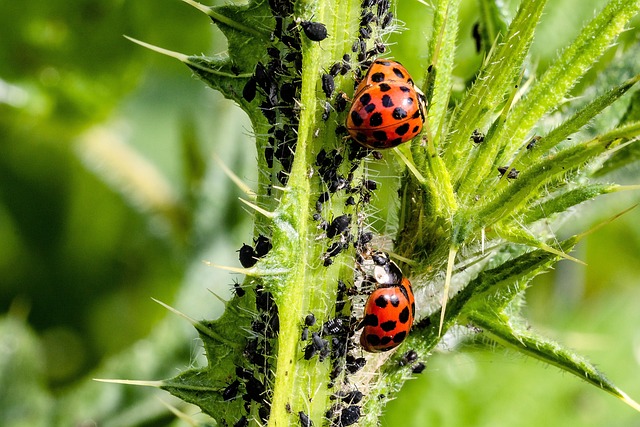Integrated Pest Management (IPM) offers an organic, holistic approach to pest control tailored for Littleton home gardens, emphasizing ecosystem balance over synthetic chemicals. By understanding pests' life cycles and implementing cultural practices like sanitation and natural controls like beneficial insects, homeowners can create sustainable environments that support plant health and minimize harmful chemical use. This method benefits local wildlife, the environment, and garden vitality, prioritizing sustainability, safety, and cost-effectiveness for organic pest control in Littleton gardens.
Discover the power of Integrated Pest Management (IPM) for your home garden in Littleton. This holistic approach to pest control focuses on minimizing chemical usage, promoting beneficial insects, and using plant-based solutions. Learn how organic pest control methods can create a healthier, more vibrant garden ecosystem. Explore practical steps to implement IPM strategies effectively, transforming your Littleton garden into a thriving oasis free from harmful pesticides.
- Understanding Integrated Pest Management (IPM) for Home Gardens
- Benefits of Organic Pest Control in Littleton Gardens
- Practical Steps to Implement IPM Strategies for Effective Organic Pest Control
Understanding Integrated Pest Management (IPM) for Home Gardens

Integrated Pest Management (IPM) is a holistic approach to pest control tailored specifically for home gardens in Littleton and beyond. Unlike traditional methods that often rely heavily on synthetic chemicals, IPM focuses on balancing the ecosystem within your garden. This involves understanding the life cycles of both pests and beneficial insects, implementing cultural practices like regular sanitation and proper plant spacing, and employing biological controls such as introducing natural predators or parasites.
By adopting organic pest control strategies, homeowners can create a sustainable environment that supports healthy plants and minimizes the use of harmful chemicals. In Littleton’s home gardens, where biodiversity is rich but pests are common, IPM offers a safe and effective solution. It encourages gardeners to become observant, taking note of any pest activity early on, and then using targeted, least-toxic methods for control. This approach not only protects local wildlife and the environment but also ensures that your vegetables, fruits, and flowers remain healthy and vibrant.
Benefits of Organic Pest Control in Littleton Gardens

In Littleton Gardens, opting for organic pest control offers a multitude of benefits for both gardeners and the environment. Unlike traditional methods that rely heavily on synthetic chemicals, organic pest management takes a more sustainable approach by utilizing natural substances and techniques to control pests. This eco-friendly strategy not only reduces the risk of harmful chemical runoff into local water sources but also promotes a healthier garden ecosystem.
By embracing organic pest control for home gardens in Littleton, residents can expect to foster a thriving environment that supports beneficial insects like ladybugs and spiders, which naturally prey on common garden pests. This integrated approach leads to long-term pest prevention while minimizing the exposure of pets, children, and local wildlife to potentially toxic substances. Additionally, organic methods often prove more cost-effective over time, as they reduce reliance on expensive commercial pesticides and promote a balanced, resilient garden that requires less ongoing maintenance.
Practical Steps to Implement IPM Strategies for Effective Organic Pest Control

Implementing Integrated Pest Management (IPM) strategies is a practical and effective approach to achieving organic pest control for home gardens in Littleton. The first step involves identifying and understanding the target pests, their behavior, and life cycles. This knowledge allows gardeners to implement specific and targeted methods, such as manual removal, physical barriers, or natural predators. By embracing the principles of IPM, homeowners can create a balanced ecosystem within their garden.
Regular monitoring is key to successful organic pest control. Inspect plants closely for signs of pests, feeding damage, or symptoms of disease. Keep detailed records of observations to identify patterns and potential issues early on. In case of infestations, consider using organic pesticides derived from natural ingredients like neem oil, insecticidal soap, or pyrethrum. These alternatives are less harmful to beneficial insects and the environment, ensuring a safer garden for both plants and inhabitants.
Integrated Pest Management (IPM) offers a sustainable and eco-friendly approach to organic pest control for home gardens in Littleton. By understanding the principles of IPM, combining biological, cultural, and chemical methods, gardeners can effectively manage pests while preserving the health of their plants and the local ecosystem. This holistic strategy not only benefits garden owners but also contributes to a greener and more balanced environment in the community. Adopting IPM practices is a step towards sustainable gardening, ensuring that future generations can enjoy vibrant and pest-free home gardens as well.
